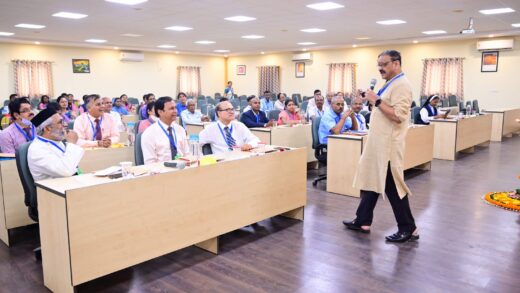Authors: Rahul R., Akarsh Upadhyay, Broto Ghosh
Teacher-in-charge: Gunjan Handa
Bright Day School CBSE, Vasna, Vadodara
India became a Republic after our constituent assembly made our constitution which took 2 years, 11 months and 18 days. The Judiciary plays a crucial role in the functioning of India’s Democracy. The constitution declares India a sovereign, socialist, secular, and Democratic republic assures its citizens justice, equality and liberty and endeavors to promote fraternity. The Judiciary works in dispute resolution, judicial review and upholding the law and enforcing fundamental rights. People of this country believe on the Judiciary totally. They know that in any case the Judiciary will give them justice and the person guilty will get the punishment according to the rule and law of this country. Sometimes these people of India have to wait long way for justice. There is a famous quote- “Justice Delayed Is Justice Denied”.
Our Judiciary plays a crucial role in The Democratic working of our country but these delays getting justice is a big problem of our country.
But what is the reason behind the cases pending in the courts of India? First we need to know that there are 4.5 crore pending cases across all courts in India, as of September 15. In fact, in 2019, there were 3.3 crore pending cases — which means that in the last two years, India has added 23 cases every minute to its pendency list. The main reasons behind this is the number of cases increasing day by day and the disposal rate of subordinate Court is very low, because of the less number of the judges, absenteeism of judges, process of trial of a case, strikes by advocates, frequent transfer of judges etc. When it comes to the number of judges in India, we currently have 18394 judges in India and 5589 seats lie vacant in line with the ‘sanctioned strength’ of the judges of lower courts and higher courts in India.
But according to our population which is around 1.3 billion, we require approx. 69000 judges.
Even in the last 2 years we have added 1.2 crore cases in the list of pending cases. People keep on asking Justice since a long time but they get it after a very long time because of these reasons.
The number of cases being delayed is also a reason of pending cases being pending. For example the Uphaar Cinema case. The case took 18 years for the court to 59 people who lost their lives and more than 100 others who got injured, on 13 June 1997. The Real Estate owners Sushil and Gopal Ansal were arrested for tampering with evidence in the Uphaar cinema fire case. But they got away with a fine of ₹60 crores without serving any jail sentence. Amidst protests, reduced compensation and equal to none punishment. Uphaar cinema case is one ill-famed precedent of delay.
This is just one of the many delayed cases. Undoubtedly, the Indian legal system urgently requires multiplying the number of judges and fast-track courts, primarily at the district level. Cases that are pending for more than a decade must be dealt with, on a priority basis. Mobile courts and more Lok Adalats are required, to reduce the burden of higher courts and resolve complex cases speedily.
The perfect answer to this unresolved problem has to be found because this loophole in our country has left many of its citizens unhappy even after getting justice.
According to a survey, the number of pending cases is increasing day by day because the number of judges employed is not sufficient. So, the first and the most significant task of the government is to increase the number of judges in India. Once the numbers of judges are increased, they should be allotted different shifts in a day. In that way more than one judge can work in a day and the number of hours they work will also be increased. This would mean that more pending cases will be resolved and justice will be provided to the sufferers in time.
Even frequent transfer of judges is a problem. These transfers should be taken place only after the case going on at that moment is solved so that the new judge does not starts the trial from the beginning. The transfers should not be this frequent also.
Another report says that most of the cases are delayed because it takes a lot of time in the forensic department. In the forensic department there are also reports of very old cases. These cases are pending because the staff there is very less. The government will have to increase the staff there and provide the forensic reports as soon as possible.
We the youth of India have faith in the government of India and believe that it will consider issue of delayed justice to people.
AUTHORS.

Rahul likes to write stories and read fiction books. He is also interested in exploring and learning more and more about the mysteries of the space and he also plays piano. He wants to become a person who could bring a change in this society.

Broto likes to read fiction books especially anime and he also writes short stories. He is always eager to know more about anything and keeps a track of the current affairs. His ambition is to become an app developer.

Akarsh wants to become a journalist so he likes to write articles on burning topics. He also takes interest in politics. He can also write lyrics and poems. His main aim is to become the voice of people and serve his country, India.



